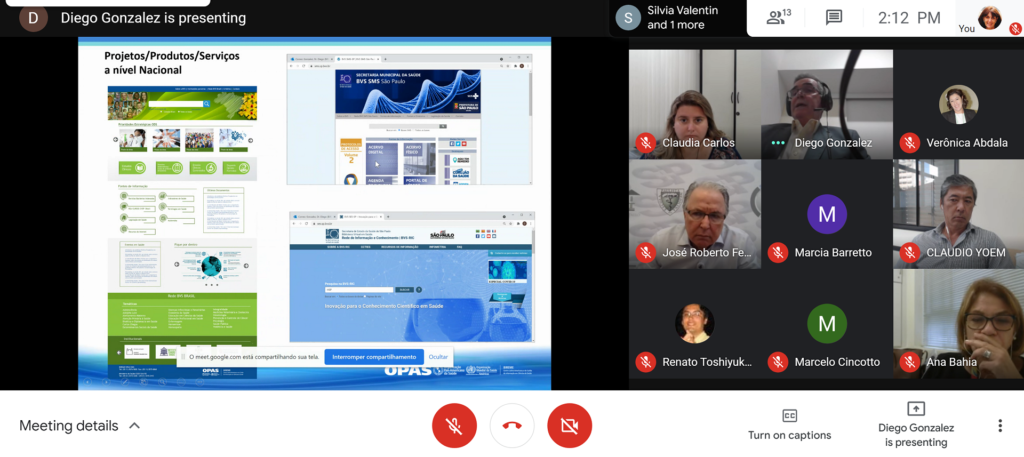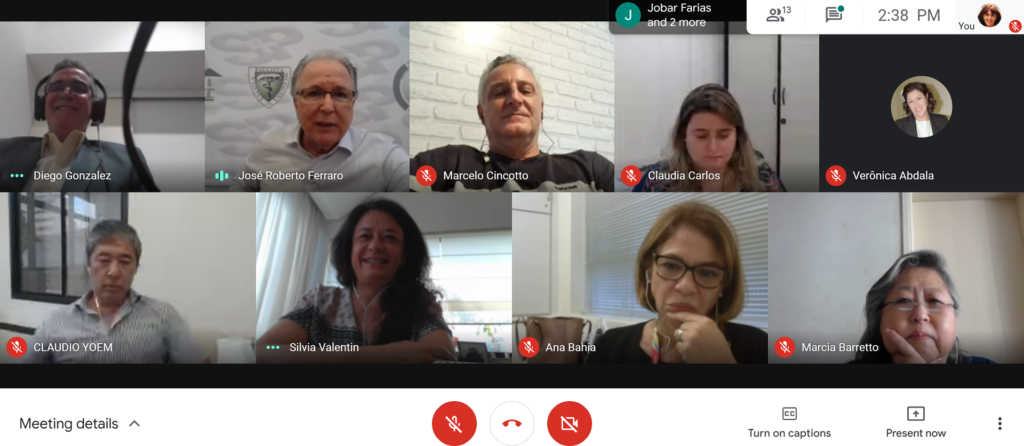
The Latin American and Caribbean Center on Health Sciences Information of the Pan American Health Organization/World Health Organization (BIREME/PAHO/WHO) and the Hospital São Paulo/Associação Paulista para o Desenvolvimento da Medicina (HSP/SPDM) has maintained an institutional relationship for more than 20 years, through a service contract that aims to keep national employees at BIREME and, more recently, at PAHO Brazil.
SPDM is a philanthropic institution whose management is based on the corporate governance system and the high competence of its employees. Directed by an Administrative Council elected by the Assembly of Associates, its main objective is the maintenance of the HSP, the Hospital Universitário da Universidade Federal de São Paulo (UNIFESP), as well as several other hospitals, assistance centers, and similar units. SPDM also has a Comprehensive Health Care Program and an Educational area, which offers undergraduate, graduate, and extension courses in the area of Health Sciences.
In this sense, and with the objective of revisiting aspects of joint cooperation and supporting the strengthening of institutional development in line with the maintenance of the mission of both BIREME/PAHO/WHO and HSP/SPDM, a meeting was held on April 12th with the presence of BIREME’s Director, Diego González, the Superintendent of HSP/SPDM, José Roberto Ferraro, besides the administrative and technical staff of their teams.
.
The meeting included a presentation by the Director, with the support of the Managerial team, about BIREME, highlighting its mission, the Governance Committees, networking and alliances with health sector institutions highlighted on BIREME’s institutional website, as well as, the Center’s projects, products and services (P/S) in information management and scholarly communication in health, with an emphasis on those related to COVID-19, such as the Windows of Knowledge, Evidence Maps, Platforms, and Applications for Primary Health Care (PHC) professionals, such as the e-BlueInfo app and the PHC VHL.
In his presentation, Diego González also highlighted the online courses on access to information and scholarly communication aimed at students and health professionals. He emphasized, as already agreed, the importance of expanding BIREME’s technical cooperation with HSP/SPDM and recommended:
(1) Organizing virtual meetings on the P/S related to COVID-19;
(2) Organizing virtual sessions on scholarly communication;
(3) Providing the service “ask the librarian” to respond to the information research needs of HSP/SPDM teams, residents, medical doctors, etc.
(4) Using the e-BlueInfo App and the VHL Infobutton to support the clinical decisions of the more than 10,000 professionals who work in the hospitals managed by the Association;
(5) Publicizing joint actions through the BIREME Bulletin, which is published monthly in Portuguese, Spanish, and English.
Silvia de Valentin, Manager of Administrative Management and Planning (GA) and focal point for the management of the service contract with HSP, pointed out that HSP employees working for many years at BIREME constitute an intellectual capital of great value at the service of Brazil and the countries of Latin America and the Caribbean in the areas of administration, management, and health information sciences, highlighting, therefore, the strategic importance of the institutional commitment between BIREME/PAHO/WHO and HSP/SPDM.
At the end of the presentation, José Roberto recommended that the institutions form a technical cooperation agreement to expand the joint activities. Diego González pointed out: “we are sure that our institutional relationship will be increasingly strengthened with actions related to the use of information, evidence, and knowledge in decision-making in clinical practice and this is the essence of BIREME’s mission.”
In the end, all were unanimous about the importance of the meeting between BIREME/PAHO/WHO and the HSP/SPDM when it became evident the need to expand the workstreams of joint cooperation, and this will certainly support the effective development of the skills and capacities of employees, specialists, and professionals from both institutions who are references in the health field.





